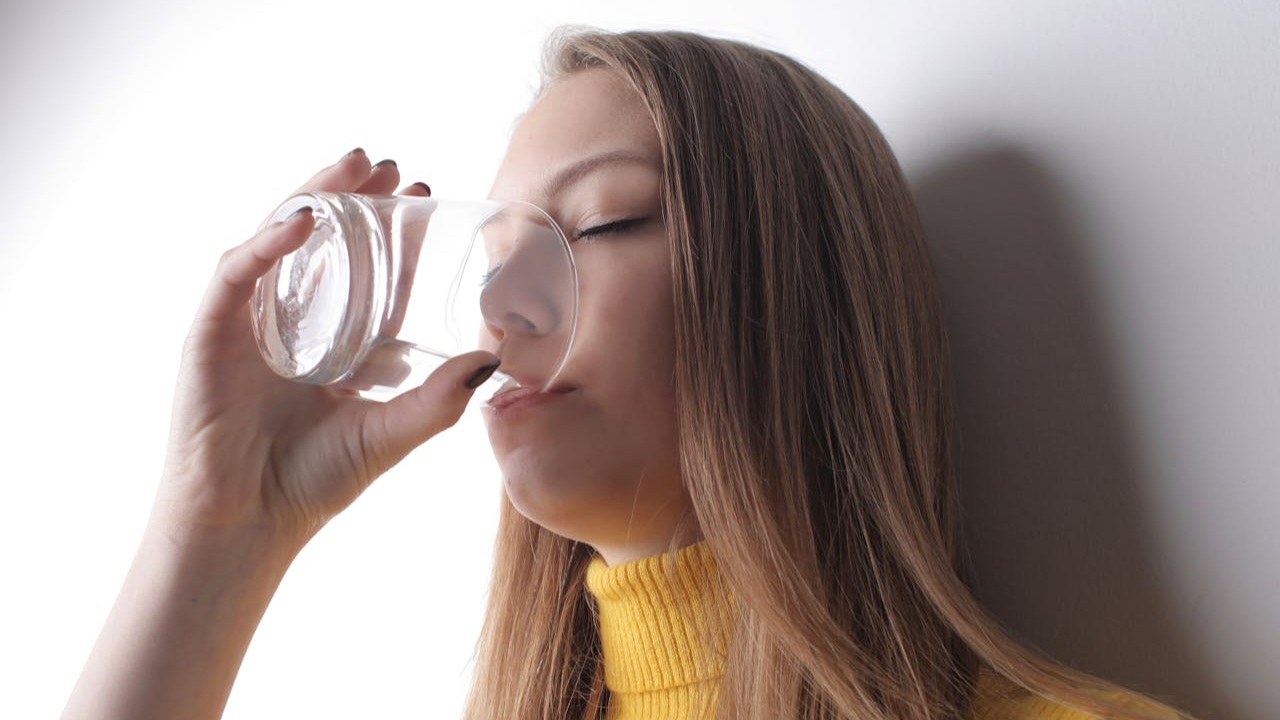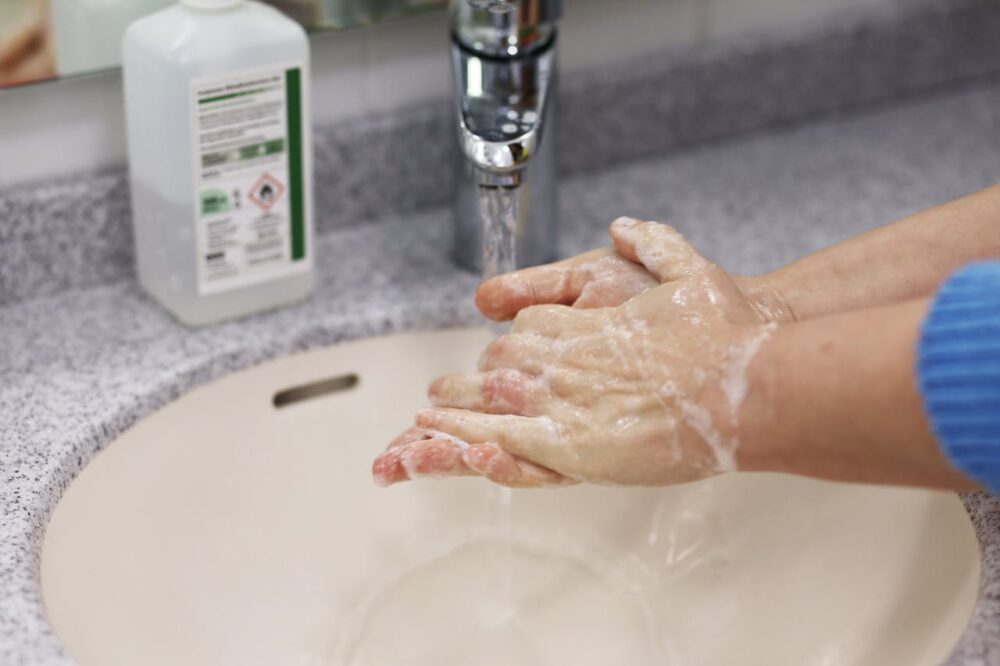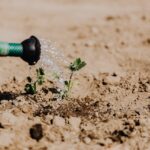How Clean Water Can Prevent Common Infections in Your Home

It’s not enough to have clean water just for drinking.
Clean water isn’t just about taste – it’s a shield against germs that can make you and your family sick.
Let’s take a look into why the water flowing from your taps matters more than you might think.
What we mean by “clean water”:
- Water that’s safe to drink, cook with, and bathe in
- Free from harmful germs, chemicals, and other dirty stuff
- Looks clear, smells fresh, and tastes good
How dirty water can make you sick:
- It carries tiny germs you can’t see but can definitely feel
- Even a little bit of contamination can lead to big health problems
- Your body is great at fighting off germs, but why make it work overtime?
Think of clean water as your home’s caretaker whose job is to keep you healthy, happy, and hydrated. But unlike human caretakers who have to close after a few hours of work, this one works 24/7 to protect you. The best part? You have the power to keep this caretaker working perfectly.
By understanding why clean water matters, you’re taking the first step in creating a healthier home. You’re not being paranoid mind you, you’re just about giving your family the best shot at staying well. And let’s face it, who doesn’t want fewer sick days and more fun days?
Remember, the water in your home should be your ally, not your enemy. Read on, as we look at how to make sure it stays on your side.
Common infections from unclean water
Water is supposed to clean things, right? But when it’s dirty, it can do the opposite. Here are some uninvited guests that might show up if your water isn’t up to the task:
Stomach troubles:
- That queasy feeling? Could be from your water.
- Diarrhoea, cramps, and nausea – no fun for anyone.
- Kids and older folks are extra vulnerable to these tummy troubles.
Skin rashes:
- Itchy, red skin after a shower? Don’t just blame your soap.
- Dirty water can leave your skin irritated.
- Some rashes stick around longer than that sunburn from your last beach trip.
Eye infections:
- Red, itchy eyes aren’t always about allergies or late nights.
- Swimming in or washing your face with dirty water can lead to eye problems.
- Pink eye is cute on rabbits, but not so much on people.
Ways water gets dirty at home
You might think, “My water is fine, it comes from a clean source” But your home can play tricks on you. Here’s how water can go from clean to harmful right under your roof:
Old or rusty pipes:
- Those pipes aren’t getting any younger.
- Rust doesn’t just look bad, it can make your water unsafe.
- Old pipes can leach all sorts of nasties into your water.
Contamination in water tanks:
- Out of sight, out of mind? Not when it comes to water tanks.
- Dust, bugs, and even small animals can find their way in.
- A dirty tank is like a swimming pool for germs.
Dirty faucets and showerheads:
- Ever seen that crusty stuff around your taps?
- It’s not just unsightly – it’s a playground for bacteria.
- Your showerhead might be spraying more than just water on you.
The good news? Knowing where the problems hide is half the battle.
How to keep your water clean
Keeping your water clean isn’t rocket science. Here are some very simple ways to make sure your water stays as pure as possible:
Regular pipe checks:
- Have your pipes checked every now and then.
- Look for leaks, weird stains, or signs of rust.
- If your pipes are older than your favourite jeans, it might be time for an upgrade.
Cleaning water tanks:
- Your water tank needs a bath too.
- Aim to clean it at least once a year.
- Call in professionals if you’re not sure how to do it safely.
Using water filters:
- Think of them as bouncers for your water.
- They catch the bad stuff before it reaches your glass.
- Change water filters regularly – a clogged filter is just as bad.
Good habits for using clean water use
Here are some habits that’ll help keep those germs at bay:
Washing hands often:

- Wash your hands for about 30 seconds. Sing “Happy Birthday” twice or say the alphabet while you scrub (just something to keep you washing your hands a little longer).
- Always wash up before cooking or eating.
- Keep the sink area clean too – it makes more sense to do your dishes in a clean sink.
Cleaning water containers:
- Water bottles and pitchers need love too.
- Wash them with soap and hot water regularly. Hot water, depending on the type of container.
- Don’t forget the caps and lids – they’re germ magnets.
Boiling water when unsure:
- When in doubt, boil it.
- A rolling boil for a minute kills most germs.
- Let it cool before you use (drink) it
Signs your water might be dirty
Your water can’t talk, but it can send you signals. Here’s what to watch out for:
Odd smell or taste:
- If your water smells like rotten eggs, it’s not a good sign.
- A metallic taste might mean too much iron.
- Clean water should taste like… well, nothing really.
Cloudy appearance:
- Fill a clear glass and take a look.
- If it’s cloudy, let it sit for a minute.
- If the cloudiness doesn’t settle, something is up.
Stains on clothes or dishes:
- Rust-coloured stains on light clothes? Could be iron in your water.
- Blue-green stains on sinks might mean copper is present in your water.
- Spots on dishes after washing? Your water might be too hard.
Your senses are your first line of defence. If something seems off about your water, don’t ignore it. It’s better to be safe than sorry when it comes to what you’re drinking and using every day.
What to do if you suspect unclean water
Let’s face it – suspecting your water isn’t clean can be scary. But don’t panic. Here’s what you can do:
Testing your water:
- Start with a home testing kit. They’re easy to use and can give you a quick snapshot.
- For a deeper dive, send a sample to a certified lab. They’ll check for things your eyes can’t see.
- Some local health departments offer free or low-cost testing. It’s worth a call to find out.
Contacting local water authorities:
- The water board in your locality isn’t just for bills. They’re your go-to for information on water quality.
- Ask questions.
- If there’s a problem, they should tell you what they’re doing to fix it.
Short-term solutions while fixing the problem:
- Bottled water isn’t just for hikers. It’s a good backup while you sort things out.
- Boiling water can be a quick fix for many contaminants.
- Consider a temporary filtration system. It’s like a Band-Aid for your pipes.
AquaMaya’s Approach:
In West Africa, where AquaMaya focuses its efforts, these steps can be challenging. Many communities lack access to testing facilities or local water authorities. That’s where AquaMaya steps in. We provide portable testing kits to communities and train the people to use them effectively. When problems are detected, AquaMaya works with the community to implement both short-term solutions (like distributing water purification tablets) and long-term fixes (such as drilling new wells/boreholes or installing filtration systems).
Benefits of maintaining clean water
What’s not to be grateful for about clean water? The benefits are numerous:
Healthier family:
- Fewer sick days mean more fun days.
- Kids grow better when they’re not fighting off waterborne illnesses.
- Even pets benefit from clean water.
Saving money on healthcare:
- Less money is spent on treating waterborne illnesses.
- Fewer doctor visits mean more cash in your pocket.
- Think of clean water as a daily dose of preventive medicine.
Peace of mind:
- No more worrying about what’s in your glass.
- Shower without fear of what’s hitting your skin.
- Cook with confidence, knowing your water is safe.
AquaMaya’s Impact:
In the communities where AquaMaya works, these benefits are transformative. The peace of mind that comes with reliable, clean water has allowed entire villages to dream bigger and plan for a brighter future.
Conclusion
Water is in every cell of our bodies, every meal we cook, every bath we take. Ensuring it is clean isn’t just a household chore, it’s a fundamental act of self-care and love for our families. From the simple act of checking your faucets to the more complex task of upgrading your plumbing, every step you take towards cleaner water is a step towards a healthier, happier home.
But let’s pause for a moment. While we worry over the occasional cloudy glass of tap water, millions around the world face a daily struggle for any water at all, let alone clean water, and for us at AquaMaya, it is a call to service. Our focus on West Africa isn’t just about drilling wells or installing filters. It’s about giving the struggling communities the tools, knowledge, and resources to take control of their water security.
As we implement these practices in our own homes, let’s remember that clean water is a global issue. The same principles that keep our families healthy can be applied on a larger scale to uplift entire communities. Whether it’s supporting us AquaMaya or other organisations like ours, advocating for better water infrastructure, or simply spreading awareness, we all have a role to play in the global fight for clean water.
In the end, whether you’re in a bustling city or a remote village, the goal is the same: safe, clean water flowing freely. It’s beyond just preventing infections; it’s about opening the floodgates to better health, education, and opportunity. So the next time you turn on your tap, take a moment to be grateful for the clear, clean water that flows out. And maybe consider how you can help extend that simple “luxury” to those still waiting for their first clean drop.
Sources:
1. https://www.ophthalmology24.com/what-to-do-if-salty-or-dirty-water-gets-into-your-eyes
2. https://pugetsoundplumbing.com/blog/10-dangers-of-rusted-pipes/
3. https://www.aquasana.com/info/how-often-change-home-water-filters-pd.html
4. https://www.cdc.gov/clean-hands/data-research/facts-stats/index.html






